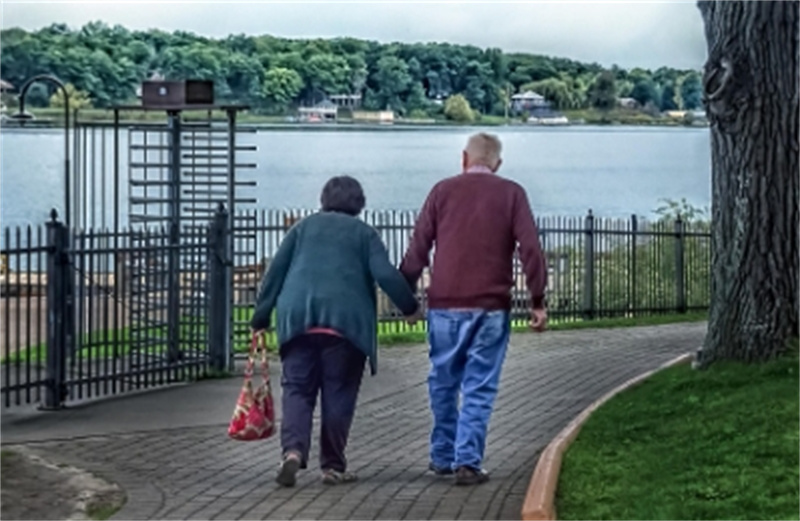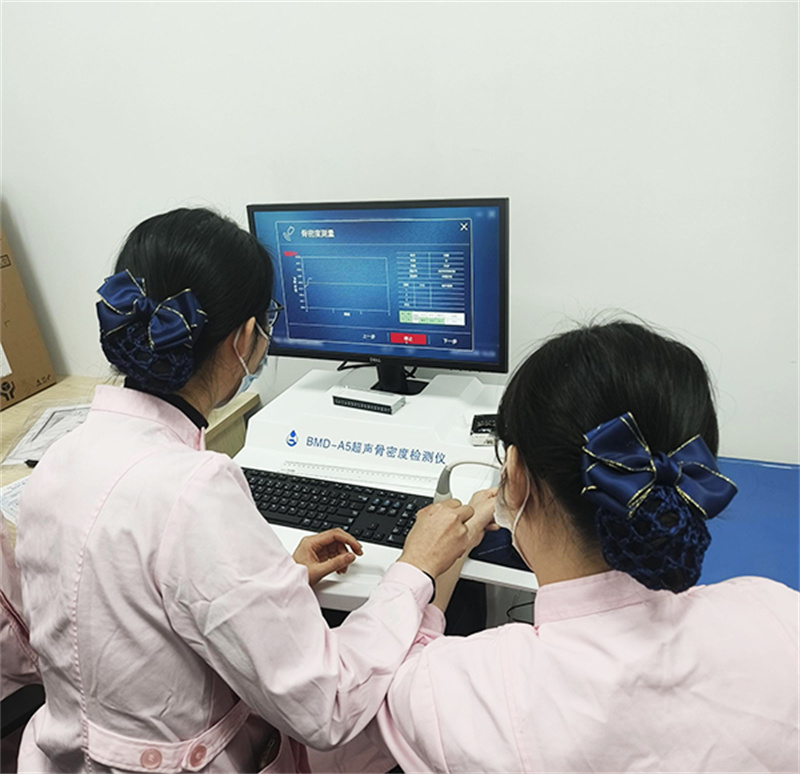What is osteoporosis?
Osteoporosis is a systemic bone disease characterized by reduced bone mass and destruction of bone microstructure, which can lead to increased bone fragility and a higher risk of fractures. This disease is more common among middle-aged and elderly people, especially postmenopausal women. In the early stage, it often has no obvious symptoms and is thus called a “hidden killer”. When symptoms such as lower back pain, reduced height and hunchback occur, it is crucial to get screened as soon as possible.
The hazards of osteoporosis
1.Pain: The most common symptom of primary osteoporosis is back pain, which accounts for 70% to 80% of patients with pain.
2. Fractures: This is the most common and serious complication of degenerative osteoporosis. It not only increases the patients’ suffering and adds to their economic burden, but also severely restricts their activities and even shortens their lifespan. According to statistics in China, the incidence of fractures among the elderly is 6.3%-24.4%, especially among elderly women of advanced age.
3. Shortened height and hunchback: This often occurs after pain. In elderly people with osteoporosis, their average height shortens by 3 to 6 centimeters.
What is ultrasonic bone density testing?
Ultrasound bone density examination is a non-invasive, painless and radiation-free method for assessing bone health. It utilizes ultrasound technology to assess the mineral density and structural characteristics of bones by measuring parameters such as the speed of sound wave propagation (SOS) and broadband ultrasound attenuation (BUA) in bones, thereby determining the risk of osteoporosis. As a non-invasive and radiation-free technique, ultrasonic bone density has attracted much attention due to its simple operation and economic practicality. Compared with traditional X-ray bone density scans, it avoids radiation exposure and is especially suitable for pregnant women, children and people who need frequent follow-ups.
Who needs to have a bone density test?
Children suffer from malnutrition and are short in stature;
Middle-aged and elderly people (especially postmenopausal women), and mothers during pregnancy (calcium intake is shared by both mother and child; too much or too little is not conducive to normal bone growth);
• Have a history of fractures or a family history of osteoporosis;
• People with long-term bone pain, reduced height or hunchback;
Malnutrition, underweight or insufficient intake of calcium/vitamin D;
Long-term smoking, heavy drinking or lack of exercise;
• Patients with endocrine diseases (such as diabetes, hyperthyroidism, chronic liver diseases);
Long-term use of hormones, antiepileptic drugs and other drugs that affect bone metabolism;
• Those with bone density indicating osteopenia or who are undergoing osteoporosis treatment and need efficacy evaluation.
Post time: Jun-25-2025


